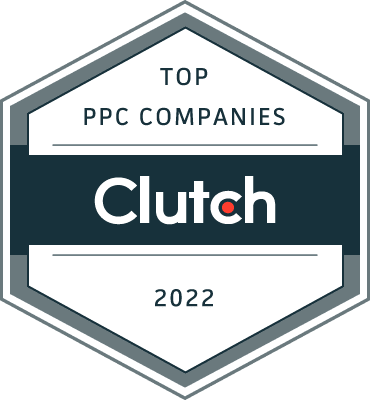February 1, 2021 Joshua Ruskin
7 Ways SEO and PPC Work Together
Organic traffic or paid traffic, SEO vs PPC, the never-ending debate between which is better than the other. Many people regard SEO and PPC as being separate marketing strategies and should be treated as such. While search engine optimization and pay-per-click advertising are very different modalities, the fact is that they are two sides of the same coin — search engine marketing.
What is SEO?
SEO stands for search engine optimization. Through the strategic placement of keywords naturally into website content (web pages, blog articles, landing pages), the website will become optimized for ranking on search engine results pages (SERPs). Essentially the more Google’s algorithm likes a webpage or blog article, the higher it will rank when a user searches using the associated keywords. There are a variety of SEO techniques for improving rankings, including content creation, technical optimization, link building, and other such activities.
Organic traffic is free but it is important to remember that SEO is a long-term channel and can sometimes take approximately 3 months for new content to perform. It is therefore important not to view SEO as a quick win but see the longevity of how this will boost your brand organically.
Pros:
- No budget needed
- Great return on investment as high positioned keywords drive revenue through organic clicks
- Sustainable
Cons:
- Slow to achieve results
- Doesn’t guarantee you top ranking position
- SEO consultancy comes at a cost if you can’t manage in-house
- High resource usage
What is PPC?
PPC stands for pay-per-click. Meaning a business sets up a Google Ads account and runs an ad campaign. The ad will run until the budget you placed is gone. However, you will only be charged for each click of the link. Hence, pay-per-click.
For some smaller businesses, this may seem a bad thing that you are paying for each visit you get, but the advantage is that you appear immediately to customers searching for your company.
Pros:
- Dominates above the fold content
- Creative ad copies
- Improved targeting
- Instant visibility in the search results
- You can bid for top results
Cons:
- Advertising budget needed
- Budget can sometimes be spent on irrelevant searches
- Constant monitoring needed
- Requires a huge amount of testing
SEO and PPC: The similarities
While PPC and SEO are different in many ways, they also share some obvious commonalities.
First off, both tactics aim to drive traffic to a website and are often aimed at generating conversions as well. While one does this through paid means and the other through the labor of climbing the SERPs organically, the end goal remains the same.
Secondly, SEO and PPC are both keyword-driven strategies. While advertisers will conduct keyword research to identify prosperous phrases to bid on and irrelevant ones to exclude through negative keyword lists, SEOs will also analyze relevant terms to understand how to optimize titles, content, technical elements, and other critical on-site aspects.
SEO and PPC Working Together
Since both deal with internet traffic in an effort to increase leads, conversions, and market exposure, it’s not too far of a stretch to believe they could work well together.
Here are the benefits of combining SEO and PPC that will affect your overall marketing strategy:
- Shared Keyword Data
The top benefit of using SEO and PPC together is shared keyword data between both marketing campaigns. When it comes to determining which campaigns or keywords are successful and which are not monitoring the data is key, and there is no such thing as too much data. With the shared keyword data benefit, you’ll be able to paint a better picture of how successful your campaigns are and how best to modify your overall marketing strategy if needed.
The Paid Search team will have a lot of current keyword data. That’s real keyword data, not tool guesstimates. At times like these, the SEO team can utilize the keyword data from Paid to make optimization decisions.
Similarly, optimizing on-page content with PPC data can lead to a lower cost-per-click. This is because Quality Score, a Google metric for deciding an ad’s rank, can be influenced by the relevance of on-page content to the ad.
Data is the lifeblood of all good search marketing strategies. Without concrete data, marketers cannot obtain definitive, objective insights into which tactics are working and which are not, how to more effectively reach consumers or how to establish future goals and roadmaps to success. While it is true that SEO and PPC must be approached differently, it is also true that the data obtained from each process can be invaluable in enhancing the performance of the other. SEO data inform PPC strategies and vice versa.
- PPC Can Be Used to Inform SEO Strategy
Using your PPC campaign to test keywords, title tags, and meta descriptions is a great way to gain insight into your SEO strategy. Unlike SEO, which can take quite a lengthy amount of time to see results, PPC will yield results almost immediately.
You should also treat your SEO listing the same as you would your PPC ad copy. Make sure your SEO titles & descriptions are as optimized as they can be. If you need some help, look at the performance of the PPC ad copy – this can help determine what ads are gaining a strong CTR. These changes can determine how many visits you receive. CTR is just one of the factors Google uses to rank your pages and ensure that they are relevant to the user’s search.
- Quality Score
Quality score is the overall estimation of the quality of your ads; this includes many aspects such as landing page relevance because quality score checks how well that page correlates with the ad.
On-page optimization is precisely that, optimizing the page to target a specific keyword, this can be quality content, well structured and organized headings, clear navigation to the converting point or end goal.
For PPC this can lead to lower click prices and better ad positions, making a paid expert’s job much easier.
- Conquer the Competition/ Visibility
SEO and PPC working together can help to increase exposure on SERPs. By combining the two you double your exposure and chances at increasing traffic.
When a user enters a search query on Google, they are generally presented with 10 organic listings and a handful of paid ads at the top. With SEO and PPC working together, they can focus on similar keywords, increasing the likelihood of your website’s listings showing up multiple times per search. If you look at it from a numbers perspective:
10 Organic Listings + 3 Paid PPC Ads = 13 total. If your website has a Page 1 ranking along with 1 PPC listing, you dominate 15% of the SERP listings.
By having a one-two punch, you can dominate more space on SERPs and gain the attention of potential customers. You also get the impression that you are a permanent presence in a certain market.
- Close Keyword Gaps
No matter if one is looking at the SEO or PPC side of things, there will inevitably be keywords that are missed by one team, or potentially both.
However, each team can view the search terms that users enter to either find a specific page or surface an advert. On the SEO end of things, the Queries report in Search Console can help reveal keyword phrases that generated a SERP impression but that are not currently not targeted by the PPC campaigns. Alternatively, Google Ads’ Search Terms Report provides similar insights for advertisers. By allowing each team access to the other’s data, both units can potentially develop more targeted efforts by employing the terms that users are actually searching but has been historically missing.
- Elevated brand awareness
When a consumer clicks a PPC ad, they are taken to a landing page where they learn about a business and its offerings. From there, they might explore a site further to get a better gauge for the brand. In other instances, they might get distracted and bounce from the page.
While this may feel a bit disheartening, that consumer just became aware of the company and what it offers through the PPC ad. When that individual searches for similar products or services in the future, they are likely to remember their interaction with the company’s website and click on its organic listings.
As prospective customers grow increasingly familiar with a brand, they are more likely to engage with its organically listed content, thereby resulting in elevated levels of traffic and (potentially) conversions.
In the end, PPC advertising helps to generate awareness for a business, even if prospects don’t immediately convert, which can lead to more organic traffic in the future.
- Remarketing campaigns
Remarketing campaigns give you an opportunity to reach previous visitors. Let’s say your website is ranking fairly well thanks to your SEO efforts and is drawing in a fair amount of visitors, but these are shoppers or potential leads who take a while to make up their mind. You can combine your SEO with a form of PPC tactic called remarketing to bring these visitors back to your site to complete their purchase or conversion at a later time.
For example, if someone is shopping for expensive office supplies on your website, but wants some time to think about it, you can purchase ad space from a website in Google’s network to show them ads for those same office supplies at a later time. This will remind them to come back to your site and complete the purchase.
By combining SEO and PPC in this way, you can reach previous visitors and encourage them to come back to complete a purchase or convert into a lead, whereas without remarketing they may have forgotten about you entirely.
Grow Your Business to the Next Level
Today having an online presence is crucial if a business wishes to succeed, grow, expand, and last a long time. This is why understanding digital marketing and more importantly how to use SEO to increase organic traffic and PPC to increase paid traffic.
When it comes to deciding between either or, definitely choose both and combine your SEO and PPC efforts to maximize your digital marketing strategy and get the most out of your online presence. Contact us today for more information on how you can take your digital marketing campaign to the next level.



